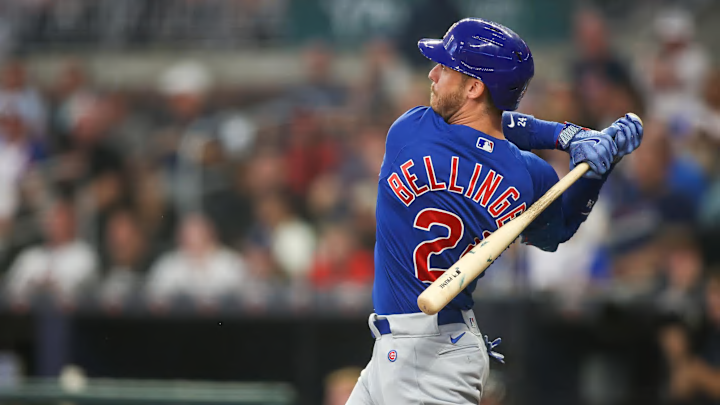At this past weekend’s Cubs Convention, most of the talk was about the prospect of signing Cody Bellinger.
And it wasn’t just the fans. Dansby Swanson, currently the team’s best-paid player, told a very approving audience, quote, “Before we get to next year, we've got to re-sign Belli.”
Cubs management appears receptive to doing just that, except for the price hangup. Reports are that Bellinger’s agent, Scott Boras, wants about $200 million spread over an eight-year commitment. However willing the Cubs are to pony up the $25 million per year that amounts to, the eight-year length of the deal is an obvious stumbling block.
But there’s a second issue as well. Swanson’s sentiments notwithstanding, how bad do the Cubs really need Bellinger?
Pending future developments, the answer to that question depends on how optimistic the team’s front office feels about the likely 2024 performance of two rookies, center fielder Pete Crow-Armstrong and recently acquired first baseman Michael Busch. If Bellinger plays elsewhere, they are the two most likely replacements in center field and at first base
Take the names out of the discussion and view this issue the way the front office likely views it, as an actuarial puzzle. Bellinger produced a 4.4 WAR for the Cubs in 2023. What are the chances that a pair of touted rookies – the team’s No. 1 and 3 prospects for the record – can combine to out-produce that 4.4 WAR?
The fact that neither has proven himself at the big league level makes any answer a supposition. As Cubs fans know, the team has a lengthy history of touted rookies flaming out once given the opportunity. The Cubs need look no further back than 2023 – when first baseman Matt Mervis emerged from Iowa to hit .167 in 99 plate appearances – to know that. Both Crow-Armstrong and Busch got brief 2023 callups, and neither went well.
There is, however, reason to believe that both are ready to become major league contributors. Crow-Armstrong is rated as the 12th best prospect in MLB entering 2024, and Busch is also solidly among the top 50.
If – this may be front office thinking – they can play regularly and produce slightly above-average numbers, the combination may be sufficient.
Last season, the average combined production of center fielders and first basemen of the 12 post-season teams was a fraction above 1.5 Wins Above Average. (WAA is a zero-based equivalent of WAR with 1.5 WAA roughly translating to 3.3 WAR.)
For all of Bellinger's contribution, the combined efforts of all Cubs center fielders and first basemen only amounted to +0.2 WAA. The Cubs largely had Mervis, Eric Hosmer and Trey Mancini to thank for that very ordinary production,
If – big ‘if’ here –Cubs management can persuade itself that it’s reasonable to expect Crow-Armstrong and Busch to combine to produce better than 1.5 WAA (3.3 WAR), they may conclude that the talent already exists to contend in 2024 even without Bellinger.
Next question: What would it take for two players to combine to produce 1.5 WAA? On the 2023 roster, the Cubs could have put that together using any of a half dozen pairings: Nico Hoerner, Mike Tauchman, Seiya Suzuki, Ian Happ, Swanson and – yes - Bellinger.
In short, Cubs management doesn’t have to believe that either Busch or Crow-Armstrong can be the next Bellinger. The question is whether they can be the next Happ or Suzuki?
For the record, in 2023, Suzuki hit .285 with an .842 OPS, while Happ batted .248 with a .791 OPS.
It’s also possible that the Cubs made their biggest improvement last fall when they jettisoned field manager David Ross for Craig Counsell.
In seven full seasons leading the Brewers, Counsell’s teams exceeded their Pythagorean win expectations every year, and did so by a total of 19 games. In four years running the Cubs, Ross’s teams fell two games short of their Pythagorean expectations, including being seven short in 2023.
We don’t know why teams fail to meet their Pythagorean projections. It could be as simple as bad luck. But another possibility is poor managerial deployment of on-field talent, leading to under- production.
If you buy that theory, then in 2024 Counsell’s +19 Pythagorean record should be worth several games more than Ross’s -2. And Bellinger may not matter all that much.
For any of this to play out positively on the North Side of course, Crow-Armstrong and Busch have to establish themselves. If the Cubs resist Swanson’s urging and remain cool to Bellinger’s demands this winter, that’s the dice roll they’re making.
Cubs stay active, acquire Almonte and Busch from Dodgers (calltothepen.com)
